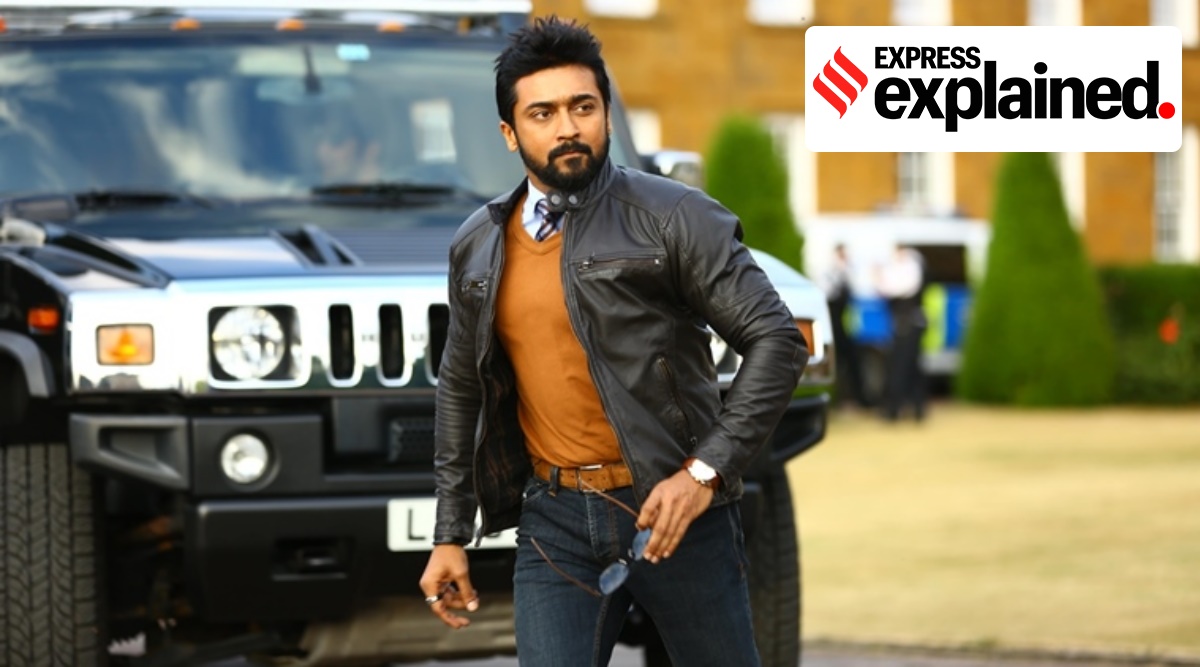
The Indian Express
Explained: Why Tamil actor Suriya’s remarks on NEET are being scrutinised for contempt of court
Suriya’s statement had a portion blaming the Supreme Court for forcing students to write NEET amid a pandemic.
by Arun JanardhananWith three students taking their lives a day before Sunday’s NEET exam, top actor Suriya was among those who issued statements condemning the situation in Tamil Nadu over the controversial competitive examinations. But certain portions of the popular Tamil actor’s statement have now kicked up a storm with a Madras High Court judge calling for judicial contempt action and senior retired judges lining up in support of the star.
What did Suriya say in his statement on NEET?
Suriya’s statement had a portion blaming the Supreme Court for forcing students to write NEET amid a pandemic. In his statement, the actor said the three deaths by suicide on Saturday, a day before the scheduled exam, due to the stress and anxiety of taking the test amid the pandemic had “shaken his conscience”.
Suriya said it was painful that the students were forced to prove their eligibility by writing a test “at a time when there was a threat to life due to the coronavirus pandemic.”
While the first portion of Suriya’s statement was mainly about the insensitivity in prioritising a nationwide exam amid a pandemic, he also made remarks about larger systemic problems: “A government that was supposed to ensure equal opportunities for everyone brought a law with an education system that creates inequality,” the actor wrote. He blamed the education policies in the country and said they were formulated by people who were clueless about the ground realities of the poor and the downtrodden.
https://images.indianexpress.com/2020/08/1x1.png
What offended the Madras High Court judge?
The statement had a portion referring to the judiciary: “Courts were delivering justice through video-conferencing due to life-threatening coronavirus fears (but) are ordering students to fearlessly go and write the exams.”
This offended Justice S M Subramaniam who wrote to the Chief Justice A P Sahi for initiating contempt proceedings against Suriya. Justice Subramaniam wrote that the statement claims “Hon’ble Judges are afraid of their own life and rendering justice through video conferencing. While-so, they have no morale to pass orders directing the students to appear for NEET Exam without fear.”
“The said statement, in my considered opinion, amounts to contempt of Court as the integrity and devotion of the Hon’ble Judges as well as the Judicial System of our Great Nation are not only undermined but criticised in a bad shape, wherein there is threat for the public confidence on the Judiciary,” Justice Subramaniam’s letter to CJ Sahi said, adding that the actor “has committed contempt, warranting contempt proceedings to uphold the Majesty of our Indian Judicial System.”
The Tamil Nadu Advocates’ Association also condemned Suriya’s statement.
Read | Over 85% attended NEET 2020: Education Minister
What happened next?
By Monday evening, six veteran jurists joined hands in support of the actor. They urged CJ Sahi to avoid any action against the actor.
Referring to arguments raised in Justice Subramaniam’s letter against the actor, a letter signed by six retired judges of Madras HC said, “Such a construction made on the statement of Suriya will be slightly off the mark and it doesn’t require any action as requested by the learned judge. Where four students have committed suicide unable to meet the NEET requirement and in a surcharged atmosphere, an artistic person’s over reaction shouldn’t be taken seriously and out of context.”
All of them, including retired Justices K Chandru, K N Basha, T Sudanthiram, D Hariparanthaman, K Kannan and G M Akbar Ali, added that “we should show generosity and magnanimity in leaving the matter without any cognisance” considering the good social work done by the actor through his trust, which had helped hundreds of poor students to complete their higher education and get placements.